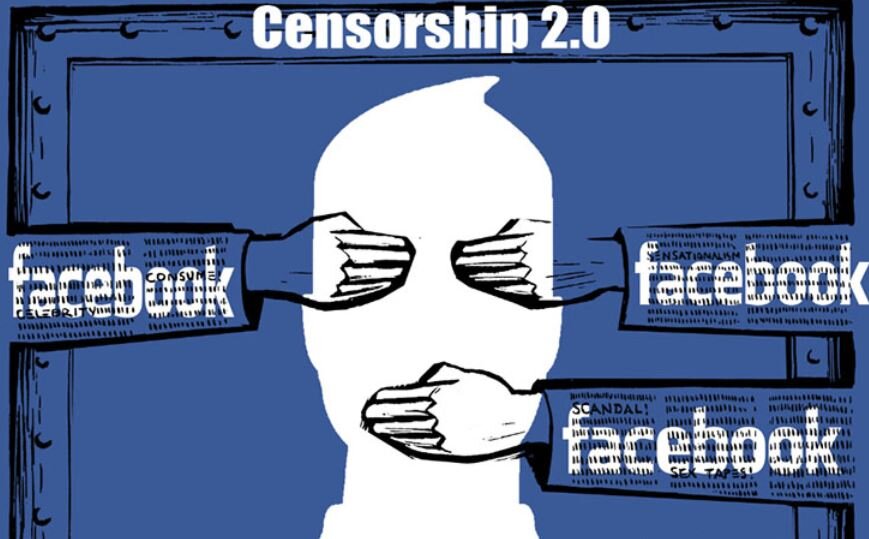
TEHRAN - These days with any big events and concerning developments surrounding our lives, the role of the media cannot and should not be undermined. Those seeking the news should be allowed to take their information from a variety of sources to make their own independent judgement on where they stand on the issue. That can’t happen when the narrative of the biggest security problem in West Asia today, the Israeli-Palestinian conflict is being narrated to suit one party over the other.
Unfortunately for the Palestinians, most mainstream media do not give them the platform to share their story or to be more precise to share their struggle with the rest of the world. The media is very one sided in favor of Israel, the news is one sided and viewers essentially do not get the full picture of what is going on.
Since the era of social media, Palestinians have switched to this virtual platform to get their message across to the world. Unfortunately, now Palestinian journalists have raised the alarm over what they say is the "unjust suppression" of their content on social media, the latest of which being U.S.-based social media giant Facebook.
Earlier this month, a Palestine TV reporter, posted a video on her Facebook account in which Israeli regime forces were seen shooting a Palestinian on the ground, which led to his murder. Shortly after posting the video, Christine Rinawi, who has nearly 400,000 followers, found out it had been deleted from her account.
This was not Rinawi’s first experience with Facebook’s censorship and the journalist said her account had already been restricted after she shared footage of a November attack in occupied Jerusalem al-Quds.
In both cases, Facebook claimed it removed the footage because the posts “violated the platform's standards.” A spokesperson for Facebook's parent company Meta claims its policies "were designed to give everyone a voice while keeping them safe on our apps.” The spokesperson also claims “we apply these policies to everyone equally, regardless of who is posting."
Palestinians have switched to this virtual platform to get their message across to the world. However, critics say Facebook has allowed very identical and similar posts by Israeli reporters to stay active on their accounts. For years now, accusations of pro-Israeli bias at Facebook have mounted and were renewed in October when the international advocacy organization Human Rights Watch, said the media giant had "suppressed content posted by Palestinians and their supporters speaking out about human rights issues in Israel and Palestine.”
Palestinian reporters have cited numerous cases they say are clearly daylight censorship. One popular online news outlet, Maydan Quds News from its social media department, may even have to fire reporters after its main Facebook page with 1.2 million followers was deleted, a source who requested anonymity said.
The Meta spokesperson says it has "a dedicated team, which includes Arabic and Hebrew speakers, who are focused on keeping our community safe by making sure we're removing harmful content.” It also alleges to be striving to address "any enforcement errors as quickly as possible so people can keep sharing what matters to them.”
But in May during an eleven-day battle between resistance factions in the Besieged Gaza Strip and Israeli regime forces, Facebook had acknowledged widescale deletion of Palestinian posts, claiming that it was down to a technical issue that it sought to fix.
According to the Palestinian social media monitoring center Sada Social, a record number of 600 Palestinian accounts or pro-Palestinian Facebook posts were restricted or deleted this year. The center helped launch a social media campaign called "Facebook Censors Jerusalem.”
A Jerusalem-based journalist, Rama Youssef, who volunteered for Sada Social, says Facebook models posts and accounts to an Israeli point of view and has "double standards.”
The Arab Center Washington DC think-tank says the Israeli authorities also push to censor "tens of thousands of posts and accounts" that support a Palestinian point of view. Facebook has refused to answer questions from the media about such requests from Israeli officials.
Media expert Iyad al-Rifai who works for Sada Social says every now and again he meets with Facebook representatives to ask for more transparency. He says the site appears to be targeting the word "shahid", the Islamic name for martyr, which Palestinians frequently use to describe people murdered by Israeli forces, including those who carry out retaliatory attacks.
Rifai says that Facebook insisted it is bound by American standards which consider "attackers to be terrorists", not martyrs to a political cause.
But he said censoring the term wholesale ignores the wider important context of the Israeli-Palestinian conflict. Again, Facebook has refused to respond to a question about its policies regarding the use of the word "shahid.”
It claims that it reviews posts according to its own policies, as well as "local laws and international human rights standards.” Rifai said he was concerned that deleting accounts might discourage Palestinians from "engaging with pivotal issues" for fear of losing "their digital history and presence.”
He says he had received from Facebook "promises to improve the working mechanisms of the algorithms so as to differentiate between journalistic content and ordinary content", but he, along with many other Palestinian activists, believe they offer "temporary rather than radical solutions.”
The increasing censorship and suppression of Palestinian voices led to the launching of a new open-source online platform last month focusing on digital rights violations and censorship by social media firms against Palestinians as well as Palestine-related content.
Highlighting the importance of the measure, the Arab Center for Social Media Development says the platform will allow for more detailed and expert documentation of violations, and rights groups to better document how social media companies handle posts, and accounts that are being singled out.

No comments:
Post a Comment